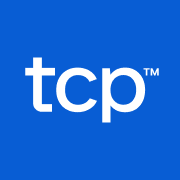
Jake Rosenberg guest authored this post. He had reached out to us proactively after reading some of our research, and offered to contribute to our blog. It’s always great to meet smart and ambitious people in this space. It’s even better when they share their knowledge with the rest of the community!
Whether you are someone who plans to work full-time in Human Resources one day or not, an internship in HR can be valuable on many different levels. Here are the top 3 reasons why I would highly recommend it:
1. You learn the ins and outs of a company
Whether you are interning for a small or large company, working in the HR department affords you the opportunity to see what drives a company. Whether it’s learning how payroll works, how the compensation structure is determined for different positions, how the recruiting process works, or how the onboarding process for new employees works, working in HR allows you to experience a company from a perspective you would not be able to see from the outside or from any other department within the company.
Tip: Ask as many questions as you can.
Don’t just stick to your segment of work. Everyone at my company was genuinely happy to discuss their jobs and answer questions about the work they do. By just sticking to only knowing and caring about the work you are assigned, you miss out on an abundance of valuable information and skills that are readily available to you and that you won’t easily have access to once you leave your internship. So, don’t be shy – ask to sit in on a meeting that sounds interesting or ask someone in a different department to grab a cup of coffee and discuss their career with you.

2. You gain knowledge in many different fields
As a talent acquisition associate, it was my job to discuss open positions with interested candidates. To do this, you have to learn about each of the positions that you are discussing with the candidate as they will almost certainly have numerous questions for you. Whether it was a position within our innovation department, an audit position, an accountant role, a job as a client manager, an IoT (Internet of Things) position, an underwriter, or an engineer, I had a pretty strong knowledge base of many different departments. While I was far from an expert on any of these things, I found it very valuable to be able to gain insights into many different fields and to see what peaked my interest.
Tip: While efficiency is important, never rush
My old basketball coach used to often reference a quote from John Wooden. “Be quick – But don’t hurry.” While I may have originally wanted to impress my manager by getting work done faster and setting up phone screens with as many interested candidates as I could, I quickly learned that it was far more important for me to gain knowledge about the position I was recruiting for before getting on the phone with a candidate. This involved researching the respective department on our company website and reaching out to more experienced recruiters and hiring managers with any questions I had.
3. You learn what makes a candidate stand out
The importance of a strong LinkedIn profile cannot be overstated. In today’s digital world, more and more employers have turned to LinkedIn to recruit and to gain insights into their candidates.
A. You need a profile picture: Having a blank profile picture displays a lack of initiative and effort, and if a candidate can’t take the time to upload a professional picture, how can a recruiter be sure they will be detail-oriented and self-driven if hired?
B. Professional photos only: LinkedIn is not the place for you to have a profile picture of you at the beach or a picture with other people in it (even if it’s cropped, it’s just as bad!). A strong candidate profile has a professional photo in professional clothing with a solid background.
C. A different type of social media: While LinkedIn is considered a form of social media, it is not to be confused with the Facebooks, Twitters, and Instagrams of the social media world. It is a professional site used to highlight key skills, past job experiences, and work update’s from ones current company. When a someone posts vacation pictures or pictures from a night out (even if it’s with their co-workers!), it can be very off-putting to a recruiter.
D. Personable, Respectful, Honest: I connected with hundreds of candidates over the course of my internship. When you are performing passive candidate searches and candidates are not actively seeking to work for your company, they can be a bit arrogant or skeptical at first (and understandably so). However, what stood out to me most in a candidate was when they were genuine, fun to talk to, and honest and up front about their career situation.
E. Follow-up Email: A follow-up message is definitely not a necessity for getting a job, but it certainly can help a candidate stand out. Something as simple as a thank you note for a recruiter’s time after a phone call or an email to check back in on the status of an application can help to keep the candidate fresh in the recruiter’s mind.
As I get closer to graduating, I will need to apply to many companies as I seek a full-time job in the future. Interning in HR has taught me exactly what stands out from a recruiter’s perspective and what definitely does not.

























